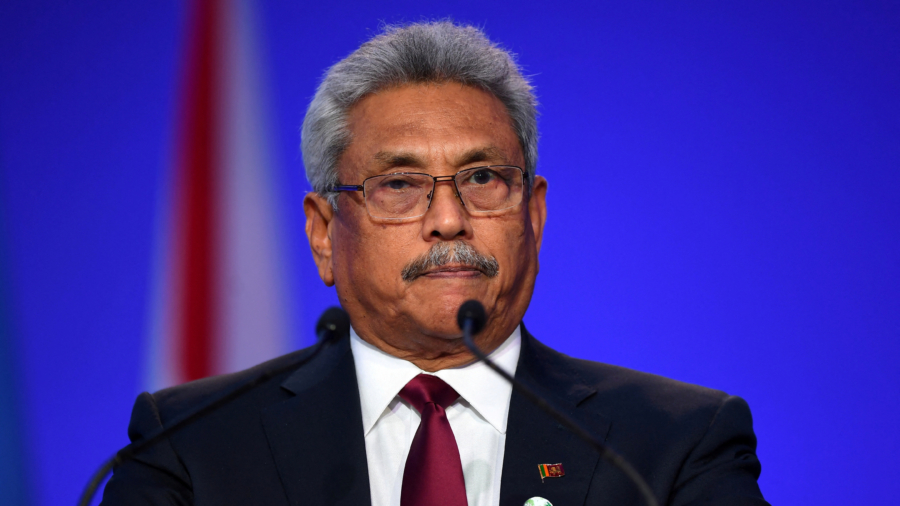BANGKOK—Former Sri Lankan president Gotabaya Rajapaksa arrived in Thailand on Thursday, according to three Reuters witnesses, as he seek temporary shelter in a second Southeast Asian country after fleeing his island nation last month amid mass protests.
Rajapaksa arrived at Bangkok’s Don Muang airport on a chartered flight from Singapore after the city-state’s immigration authority said in a statement on Thursday he had left Singapore.
Rajapaksa is expected to stay temporarily in Thailand after fleeing Sri Lanka for Singapore on July 14. He resigned from office shortly afterwards following unprecedented unrest over his government’s handling of the worst economic crisis in seven decades, and days after thousands of protesters stormed the president’s official residence and office.
Thai authorities said the former military officer, who is the first Sri Lankan head of state to quit mid-term, had no intention of seeking political asylum and would only stay temporarily.
“This is a humanitarian issue and there is an agreement that it’s a temporary stay,” Prime Minister Prayuth Chan-ocha told reporters on Wednesday. Rajapaksa could not participate in any political activities while in Thailand, Prayuth said.
Thailand’s Foreign Minister Don Pramudwinai said the Sri Lankan government supported Rajapaksa’s trip to Thailand, adding that the former president’s diplomatic passport would allow him to stay for 90 days.
Rajapaksa has made no public appearances or comment since leaving Sri Lanka. Reuters was not able to immediately contact him.
Sri Lanka’s economic crisis is a result of several factors including COVID-19, which battered its tourism-reliant economy and slashed remittances from workers overseas, rising oil prices, populist tax cuts and a seven-month ban on the import of chemical fertilizers last year that devastated agriculture.
By Panu Wongcha-um, Juarawee Kittisilpa and Chen Lin


